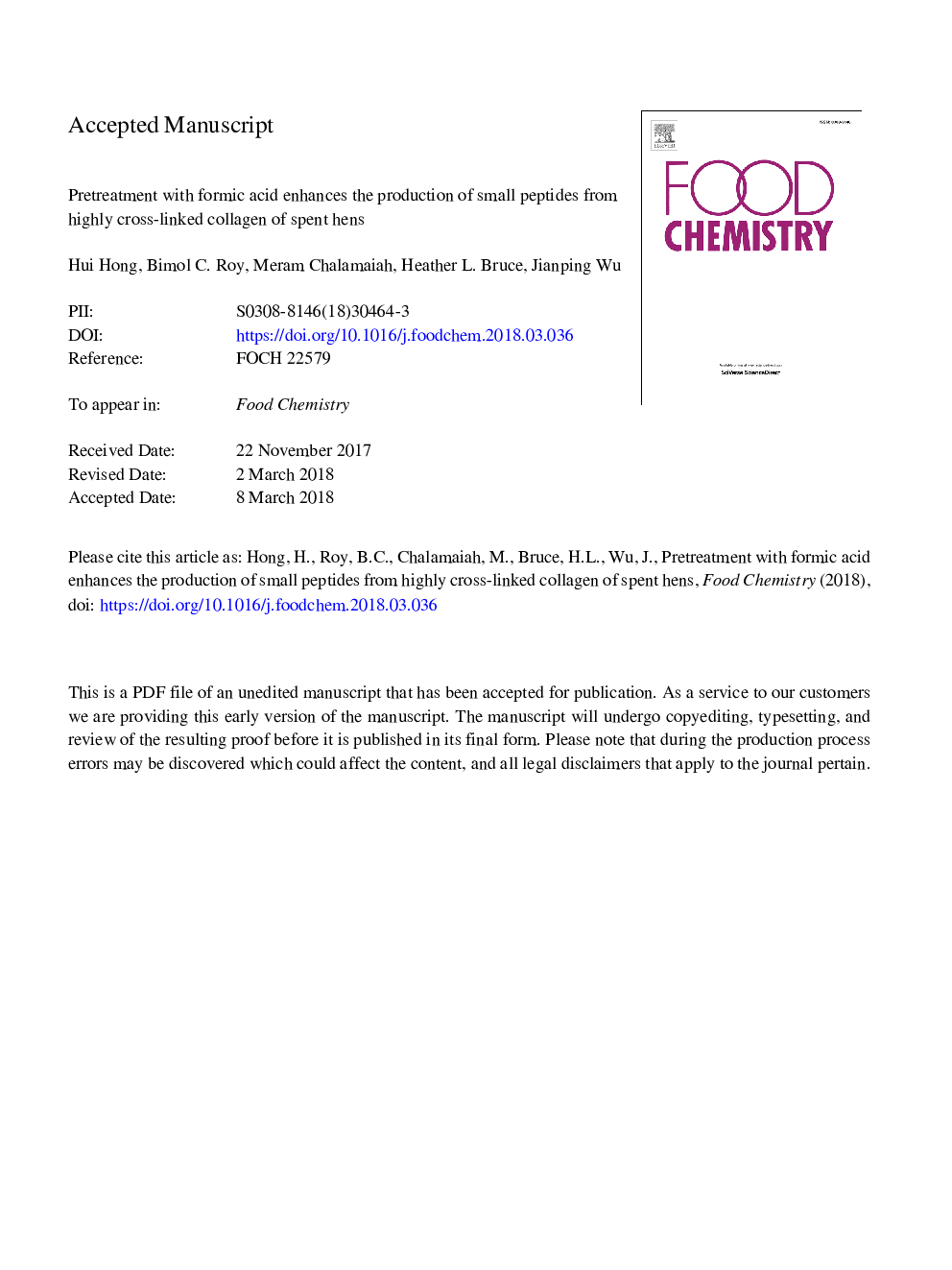| Article ID | Journal | Published Year | Pages | File Type |
|---|---|---|---|---|
| 7585163 | Food Chemistry | 2018 | 29 Pages |
Abstract
Small collagen peptides are associated with various benefits, such as bone and skin health. However, preparation of small collagen peptides from terrestrial vertebrate origins remains a challenge. Here, we show that pretreatment with formic acid enhanced the production of small collagen peptides from spent hen skin. After pretreatment with formic acid, the percentage of small peptides below 2â¯kDa increased to 48.92% and 43.34% from 33.79% and 36.32% for heat-soluble collagen (HSC) and pepsin-soluble collagen (PSC), respectively. Pretreatment with formic acid degraded telopeptides and released the cross-links (pyrrole and pyridinoline), which made hen collagen more susceptible to papain hydrolysis. LC-MS/MS results revealed that none of the peptides identified from HSC-FA (formic acid)-Papain and PSC-FA-Papain were derived from cross-linked telopeptides. These results demonstrated that formic acid assisted the hydrolysis of highly cross-linked collagen of spent hens, and it might also be used to produce small collagen peptides from other aged, vertebrate collagens.
Keywords
Related Topics
Physical Sciences and Engineering
Chemistry
Analytical Chemistry
Authors
Hui Hong, Bimol C. Roy, Meram Chalamaiah, Heather L. Bruce, Jianping Wu,
